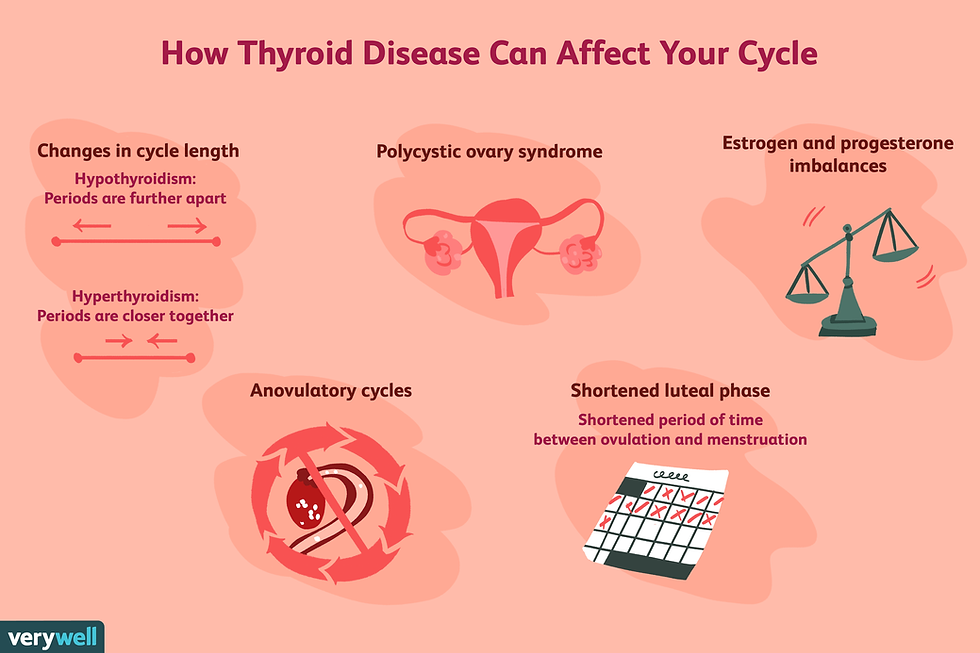
In the intricate world of equine health and reproduction, understanding the underlying factors that influence fertility is paramount. One such factor that has gained attention in recent years is the relationship between thyroid function and fertility in mares. The thyroid gland plays a pivotal role in regulating various physiological processes, and its impact on reproductive success in mares is a topic of growing interest among horse enthusiasts and breeders.
The Thyroid-Reproductive Axis: The thyroid gland, situated in the neck region, produces hormones that control metabolism, growth, and energy balance. One of its primary hormones, thyroxine (T4), interacts with the hypothalamus and pituitary gland to maintain a delicate balance known as the thyroid-reproductive axis. This axis plays a vital role in orchestrating the mare's estrous cycle, ovulation, and overall reproductive health.
Thyroid Hormones and Estrous Cycle: A well-functioning thyroid gland is crucial for maintaining a mare's normal estrous cycle. Thyroid hormones influence the frequency and regularity of estrus phases, ensuring that mares exhibit proper heat behaviors and ovulation patterns. An underactive thyroid (hypothyroidism) may lead to irregular estrous cycles and ovulatory disturbances, potentially impacting the mare's ability to conceive.
Impact on Ovulation: Ovulation is a critical event in equine reproduction, and proper thyroid function contributes to its success. Thyroid hormones regulate the production of gonadotropins such as luteinizing hormone (LH), which trigger ovulation. An imbalance in thyroid hormones can disrupt this process, leading to delayed or failed ovulation, reducing the mare's chances of conception.
Thyroid Disorders and Fertility: Thyroid disorders, such as hypothyroidism and hyperthyroidism, can significantly affect a mare's fertility. Hypothyroidism, characterized by low thyroid hormone levels, may result in prolonged anestrous periods, failure to cycle, and suboptimal uterine conditions for pregnancy. Conversely, hyperthyroidism, marked by excessive thyroid hormone production, can disrupt hormone equilibrium, leading to irregular estrous cycles and early embryonic loss.
Nutrition and Thyroid Health: Maintaining optimal thyroid function requires appropriate nutrition. Iodine, an essential mineral, is a key component in thyroid hormone synthesis. Mares deficient in iodine may experience thyroid dysfunction, potentially influencing fertility. Ensuring a balanced diet rich in iodine, selenium, and other crucial nutrients can help support the mare's thyroid health and subsequently enhance reproductive outcomes.
Stress and Thyroid Function: Stress, whether physical or psychological, can impact thyroid function and subsequently affect fertility. Chronic stress may lead to disruptions in the thyroid-reproductive axis, causing irregular cycles and reduced conception rates. Proper management techniques, ample exercise, and a calm environment can help mitigate stress's negative effects on thyroid health and fertility.
Conclusion: The intricate interplay between thyroid function and fertility in mares underscores the significance of a well-balanced thyroid-reproductive axis. Breeders, veterinarians, and horse enthusiasts must recognize the vital role the thyroid gland plays in regulating estrous cycles, ovulation, and overall reproductive success. By prioritizing proper nutrition, stress management, and regular veterinary care, we can optimize thyroid function in mares, ultimately increasing their chances of successful conception and healthy foal production. Understanding this relationship allows us to unlock the potential for healthier equine generations to come.
%20(1).png)
Comments